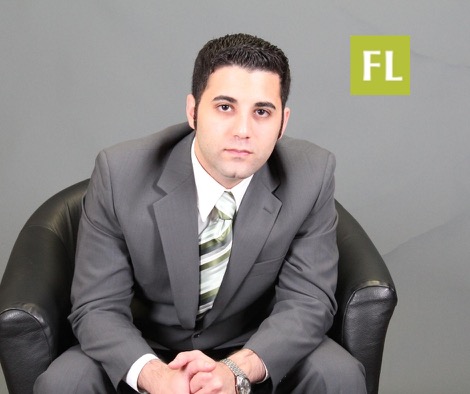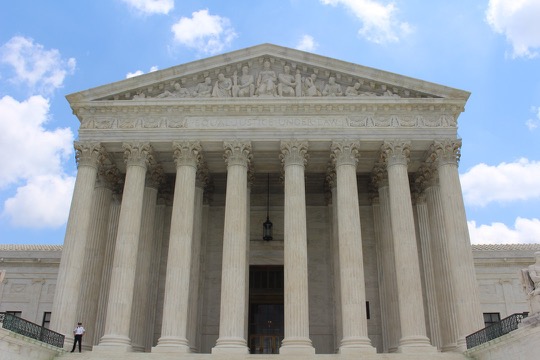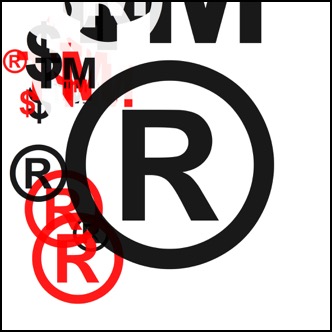Trademark Attorney in Troy, Michigan

Located in Troy, Michigan, Farjo Law PLLC stands as a knowledgeable source in intellectual property law. With businesses becoming more common, especially in cities like Troy, Michigan, a trademark attorney is crucial to protect your hard work and ideas.
Who Needs a Trademark Attorney?
With the multitude of businesses in the city of Troy, Michigan, having a trademark attorney close to home can make all the difference. Business owners, entrepreneurs, and inventors who wish to protect their brand, logo, or intellectual property should consider hiring a trademark attorney. One of the key responsibilities of a trademark attorney is to conduct thorough trademark searches to determine whether a proposed mark is available for registration. They analyze existing trademarks and assess the likelihood of confusion or conflict between trademarks, ultimately advising clients on the best course of action to protect their brand. Trademark attorneys can save you time and money by ensuring your idea is original and will not cause conflict.
How a Trademark Attorney Can Help You:
Trademark attorneys are knowledgable in navigating the complex legal landscape of trademark law, ensuring that their clients' trademarks are registered, protected, and enforced. They can also assist with trademark infringement disputes, licensing agreements, and resolving conflicts with competitors. By using the services of a trademark attorney, individuals and companies can safeguard their brand's identity and reputation, ultimately contributing to their long-term success.
In the event of trademark infringement, trademark attorneys are skilled litigators who can represent their clients in court or negotiate settlements to resolve disputes. They are also adept at drafting licensing agreements, ensuring that their clients maintain control over their intellectual property while allowing others to use it in a mutually beneficial arrangement. Trademark attorneys play a crucial role in the success of businesses and entrepreneurs, as they help to protect and enhance the value of their intellectual property. By engaging the services of a skilled trademark attorney, individuals, and companies can safeguard their brand's identity and reputation, ultimately contributing to their long-term success.
What is the Cost?
While hiring a trademark attorney may seem like an unnecessary cost, this is far from the truth. Government filing can be confusing and any mistake can set you behind. By hiring a trademark attorney you not only get the appropriate filing done, but you also save time and the headache of doing it yourself.
Your Troy, Michigan Trademark Attorney:
Whether you're a large or small business and need a trademark attorney in Troy, Michigan, and surrounding areas, contact Farjo Law Pllc to speak to our trademark attorney at
(248) 218-9991. By protecting your ideas your business can continue to grow and prosper while avoiding issues along the way.Trademark Solutions for Foreign Trademark Applicants

As of August 3, 2019, a foreign-domiciled trademark applicant is required to use a U.S. attorney to file a trademark application.
The USPTO revises the rules in parts 2, 7, and 11 of title 37 of the Code of Federal Regulations to require foreign applicants, registrants, or parties to a proceeding to be represented by an attorney, as defined in § 11.1, 37 CFR 11.1, that is, an attorney who is an active member in good standing of the bar of the highest court of a U.S. state (including the District of Columbia and any Commonwealth or territory of the U.S.) and who is qualified under § 11.14(a), 37 CFR 11.14(a), to represent others before the Office in trademark matters.
https://www.federalregister.gov/d/2019-14087/p-6
What does this new rule regarding foreign trademark applicants mean?
This means if you are a “foreign-domiciled” trademark applicant, which is defined as a person or entity that does not have a domicile in the United States (or US territories) then you will need a US attorney to file a US based trademark application on your behalf. This new rule for the most part also applies to Canadian entities. "Canadian trademark attorneys and agents continue, if eligible, to be recognized as additionally appointed practitioners who can represent their Canadian clients, although the USPTO will correspond only with the appointed U.S.-licensed attorney." Emphasis added in bold. https://www.uspto.gov/trademark/laws-regulations/trademark-rule-requires-foreign-applicants-and-registrants-have-us#anchor1 A person's domicile is where the person resides at. "An entity’s domicile is its principal place of business (headquarters) where the entity’s senior executives or officers ordinarily direct and control the entity’s activities. " Id.Let Farjo Law PLLC provide your company with trademark solutions. If you are a foreign entity and wish to file a trademark in the United States, then we may be able to help. We are more than happy to work with your company or foreign attorney to find appropriate trademark solutions that will allow you to comply with this new USPTO rule. Just book a phone appointment or in person appointment (our office is located in Troy, Michigan which is part of the Metro-Detroit area).
Can I register a trademark for a cannabis hemp business?

By Sadeer Farjo, JD
Many states have legalized marijuana. Similar to other companies, cannabis hemp businesses also want to protect their brand with a federal trademark registration.
Can a cannabis hemp business get trademark protection for their marijuana-related product?
Even though some states (including Michigan) have legalized Marijuana for certain purposes, cannabis-related products are still restricted according to federal law. One of the requirements to get a trademark registration is that the use of the trademark must be lawful.
How is marijuana defined?
In 2018 President Trump signed the Farm Bill which removed hemp that contains no more than .3% THC from the list of controlled substances. Generally speaking the definition of marijuana, under the Controlled Substance Act, does not include hemp that contains less than .3% THC.
Does that mean I can register a trademark for hemp and CBD products (that are derived from hemp) as long as the products contain no more than .3% THC?
According to the United States Federal Food, Drug, and Cosmetic Act (FDCA) marijuana, hemp, and CBD goods that are ingestible are not lawful. Thus it leads us to believe that food, drinks, and supplements containing marijuana, hemp, and CBD are not registrable without approval from the FDA.
Can any CBD or cannabis hemp products or services be registered?
Maybe. There is a very strong argument that CBD topical creams containing less than .3% THC can receive a trademark registration. Additionally, marijuana educational and advocacy services can receive trademark registration.
A product that is intended to be used for purposes other than marijuana related uses, but just so happens to also be used by some people for marijuana, can potentially be registered if that product disclaims the marijuana use. For example, the United States Patent and Trademark office registered the trademark BAKEBROS (Reg. No. 5760821) for "Smoker's articles, namely, smoking pipes and oral smokeless vaporizers, and not for use with marijuana-related goods."
A Trademark application process for a cannabis hemp business and other related goods and services can be complex. You are encouraged to schedule a consultation with us by clicking here.
The brief post above is just informational. It does not create an attorney-client relationship. You are not to rely on the above information, rather, you should seek a competent legal counsel to advise you for your particular situation.
US Supreme Court Allows an Allegedly Immoral Trademark to be Registered

The U.S. Supreme Court ruled that the previous trademark law that banned obscene trademarks violates the First Amendment's Freedom of Speech.
The decision was focused on a California clothing designer who wanted to register FUCT as a trademark. The United States Patent and Trademark Office turned him down explaining that the word FUCT sounded like an obscene word.
The Supreme Court said such trademarks are protected by the first Amendment.
Selecting a Trademark

One of the most important things to consider when selecting a trademark is the trademark's strength. Below are the categories of trademarks listed by their respective strength.
Fanciful trademarks
Fanciful trademarks (strongest) are marks composed of a word(s) that is made-up. Fanciful trademarks usually have no meaning; for example, the trademark Kodak for film cameras.Arbitrary trademarks
Arbitrary trademarks are also strong trademarks and are usually made up of a real word or words, but such words have very little to do with the product; for example, Apple for computers.Suggestive trademarks
Suggestive trademarks are also considered strong. They are marks that are usually composed of real words that have some characteristics with the product/service, but that the consumer to make a mental step to figure out such association. For example the trademark Coppertone, used for sunscreen.Descriptive trademarks
Descriptive trademarks are usually considered weak marks. They are often made up of word(s) that describe the product/service's characteristics. Descriptive marks do not require the consumer to make any mental step to understand the association with the product/service. For court has held BED & BREAKFAST REGISTRY was descriptive for lodging reservation services.Generic Terms
Generic terms cannot be registered as trademarks. The 7th Circuit Court explains that "[a] generic term is one that is commonly used as the name of a kind of goods." For example ANALOG DEVICES was held to be generic in references to devices with analog capabilities.I hope this short guide will help you in selecting a trademark.
If you would like help registering your trademark, please book a consultation with us here.
To learn more about trademark law you can read our short article entitled "What is a trademark?" or visit the United States Patent and Trademark Office website https://www.uspto.gov/trademark